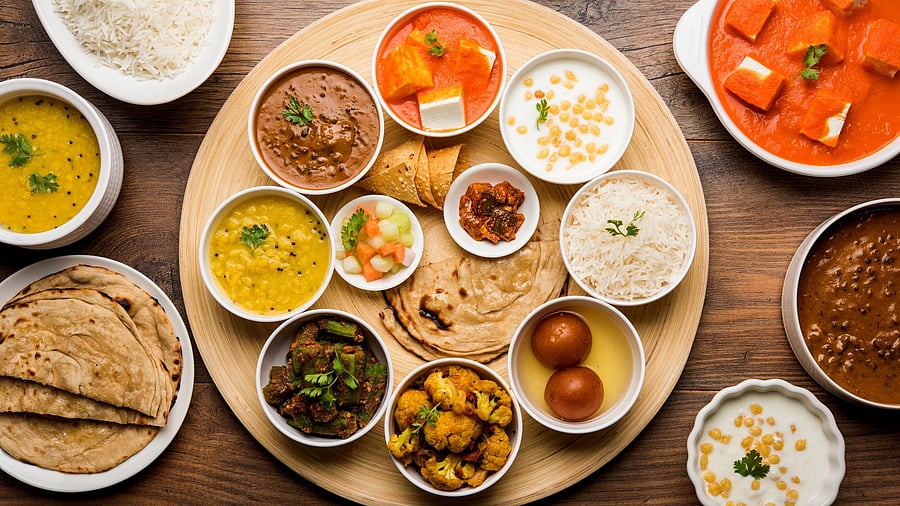
Prices of rice (accounting for 12% of the veg thali cost) and pulses (9 per cent) also increased by 14% and 21% y-o-y, respectively.
Credit: iStock Photo
New Delhi: Surge in price of rice, pulses, tomato and onion made home-cooked vegetarian thali costlier by 5 per cent in January, as compared to the same month last year, while higher production of chicken brought respite for non-vegetarian people, data compiled by rating agency CRISIL showed on Wednesday.
Rice, which accounts for 12 per cent of a vegetarian thali cost, became costlier by 14 per cent year-on-year (YoY), while the price of pulses shot up by 21 per cent during the month under review. Price of onion in January 2024 was 35% higher when compared with the same month last year. Tomatoes got more expensive by 20 per cent year-on-year.
The average cost of a home-cooked vegetarian plate rose to Rs 28 in January from Rs 26.6 recorded in the same month last year, registering an increase of 5 per cent.
However, on a month-on-month basis, the vegetarian thali cost eased for the third consecutive month in a row in January. It declined from Rs 30.5 in November to Rs 29.7 in December and further to Rs 28 in January. This was due to 26 per cent and 16 per cent month-on-month decline in prices of onion and tomato, respectively, with higher domestic supply of onion amid export curbs and fresh tomato arrivals from the northern and eastern states.
Non-vegetarian food became cheaper year-on-year as well as sequentially. The cost of a home cooked non-vegetarian thali declined by 13 per cent to Rs 52 in January from Rs 59.9 recorded in the same month last year.
The decrease in the cost of the non-vegetarian thali was due to a decline of 26% YoY in broiler prices amid higher production, CRISIL noted in the report.
On a monthly basis, the non-vegetarian thali became cheaper by 8 per cent. Chicken (broiler), which accounts for 50 per cent of the cost of a non-vegetarian thali, became cheaper by 8-10 per cent in January when compared with the previous month.
For the purpose of analysis items considered for a vegetarian thali include roti (bread), vegetables (onion, tomato and potato), rice, dal, curd and salad. The non-vegetarian thali has the same elements as the vegetarian thali, except that pulses are replaced by chicken (broiler).
CRISIL noted in its monthly report that the costs are representative. It indicates the cost of preparing a thali at home. It is not the retail price of a thali, which includes overhead costs, staff expenses, and profit margins.
“Cost of home-cooked non-veg thali came down YoY in January due to lower poultry prices, but veg thali got dearer with an uptick in prices of pulses, rice, onion and tomato,” the rating agency said.
The average cost of preparing a thali at home is calculated based on input prices prevailing in north, south, east and west India. The monthly change reflects the impact on the common man’s expenditure, it said
Surge in the price of rice, pulses and wheat is among the key reasons for the spike in food inflation that soared to 9.53 per cent in December. Cereals became costlier by 9.93 per cent year-on-year in December, as per the latest Consumer Price Index (CPI) retail inflation data released by the National Statistical Office (NSO).
The annual retail inflation as per the Consumer Price Index (CPI) rose to 5.69 per cent in December as against 5.55 per cent recorded in the previous month.
CRISIL data indicate that food inflation likely remained elevated in January. The NSO is scheduled to release the January retail inflation data on Monday.
The headline retail inflation has been above the Reserve Bank of India’s medium-term target of 4 per cent for 51 months in a row.
The Reserve Bank of India (RBI) is widely expected to keep policy interest rates unchanged in the last monetary policy review of the current financial year to be announced on Thursday.